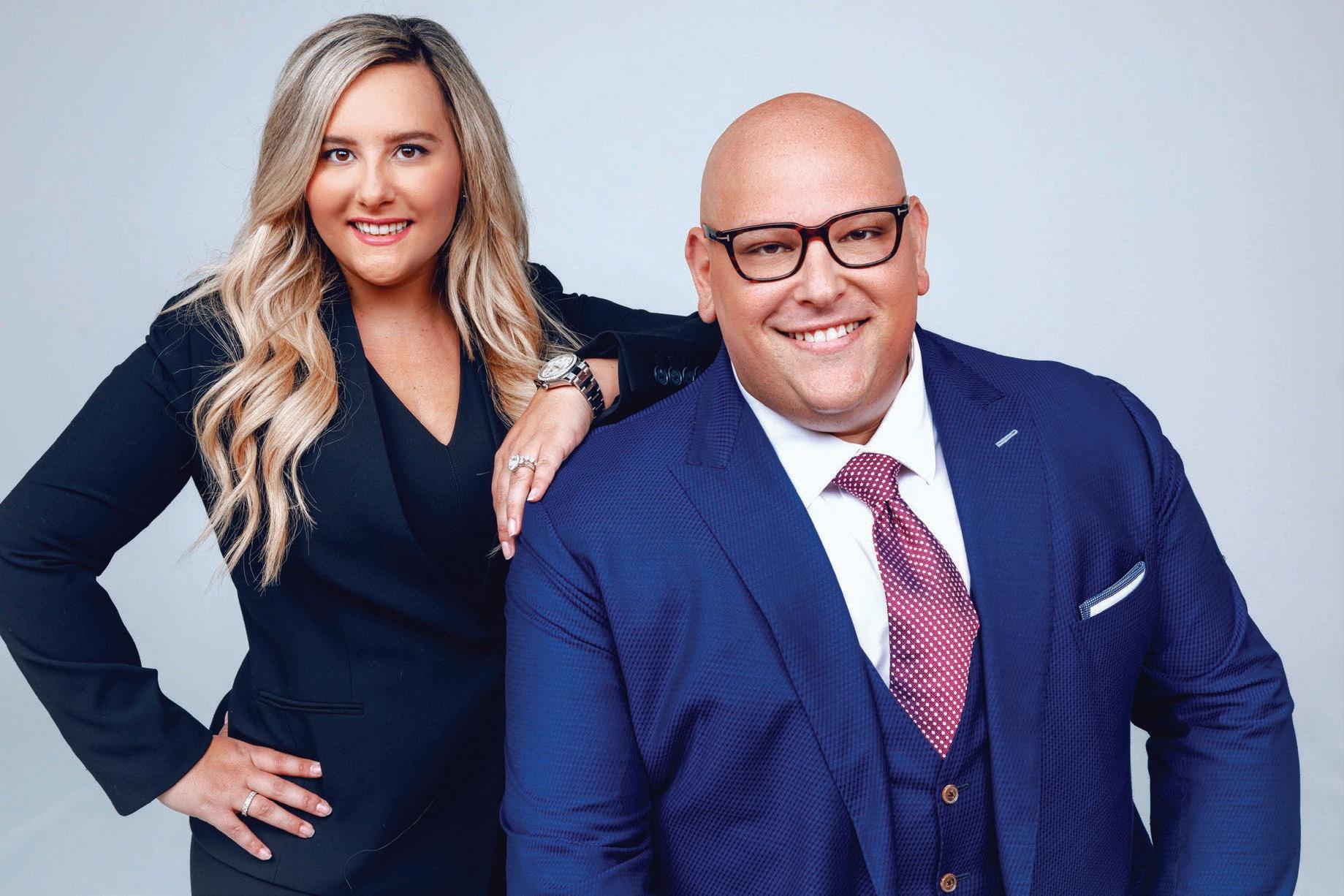
7 minute read
Lawyer Impairment What Is a Law Firm to Do?
by Conor J. Slattery
In response to the coronavirus pandemic, many law firms implemented remote work systems. While this move was made to protect the physical health of law firm employees, it has made it more difficult to recognize and assess mental health issues that might interfere with a lawyer’s ability to practice law. Despite the prevalence of remote work, law firms remain responsible for monitoring the activities of their lawyers and other employees, and to take action if it becomes apparent that a colleague is suffering from an impairment that could lead to a violation of the Rules of Professional Conduct. Prompt action by the firm can protect the interests of the firm’s clients, while also ensuring that the affected employee obtains appropriate help.
Pursuant to Rule 5.1, a partner or lawyer with supervisory responsibility within a law firm is responsible for ensuring that the conduct of the firm’s lawyers conforms to the Rules of Professional Conduct. A partner or supervisory lawyer may be violating the rule if the lawyer “knows of the conduct at a time when its consequences can be avoided or mitigated but fails to take reasonable remedial action.” If a supervising lawyer knows, for example, that a lawyer is regularly failing without explanation to attend to work in a timely way, the supervising lawyer should inquire further, to determine whether there is some impairment that is preventing the lawyer from attending to his or her work. Impairment also can come to a firm’s attention in other ways, such as a complaint from a client of unreturned phone calls, or a report from a staff member of excessive drinking at a firm social function.
Once such a report makes its way to the firm’s managing partner, what is the firm ethically obligated to do? The Office of Bar Counsel suggests that the firm’s first step should be to speak with the impaired attorney about the situation, even if the firm does not believe any misconduct has occurred. Ellen M. Meagher, Office of Bar Counsel, When a Colleague Becomes Impaired: Obligations of Lawyers and Law Firms as to Incapacitated Partners or Associates (February 2005). This first meeting is an opportunity for the firm to find out whether there is a problem, whether the attorney recognizes and acknowledges the scope of the problem, and if so, whether the impairment can be cured, controlled, or treated. If the attorney is prepared to work with the firm in identifying the problem and coming up with a solution, the next step likely is a referral to Lawyers Concerned for Lawyers (“LCL”). LCL is a free and confidential attorney assistance program dedicated to helping those in the legal profession who are struggling with the personal and professional challenges of life as a lawyer. LCL provides mental health resources, addiction recovery support, and practice management services. If appropriate, LCL may be able to assist the impaired attorney in drafting up a monitoring plan that the attorney and firm can use as a basis for the attorney to continue practicing while working to address the cause of the impairment.
The firm’s next step should be to assess, based on information learned from the impaired attorney and other sources, whether the lawyer’s impairment potentially impacted on the attorney’s work for clients. ABA Formal Opinion 03-429 (Obligations with Respect to Mentally Impaired Lawyer in the Firm). The most common types of misconduct to occur in these instances are neglect and/or a failure to communicate with clients. It may be appropriate for the firm to assign a partner to review the attorney’s list of active matters and obtain a current status from the impaired attorney as to each matter. If the firm believes that the lawyer’s impairment may have had an impact on client work, the firm should review the attorney’s work product to determine whether any neglect has occurred, and whether there has been harm to the client. If the firm discovers any instance of misconduct that has caused harm, the firm promptly must inform the client of the issue and seek permission to take steps to undo the damage.
In these circumstances, the firm also should consider its obligation to report the impaired lawyer’s conduct to
the BBO pursuant to Rule 8.3. Impairment alone does not require such a report. A report is mandatory only if the attorney has committed a violation of the Rules of Professional Conduct that raises a substantial question as to the lawyer’s honesty, trustworthiness, or fitness as a lawyer. For example, if the impairment has resulted in improper or excessive billing, or misrepresentations to the client regarding the status of a matter, those instances could fall within the reporting obligations of Rule 8.3.
Additionally, if the impaired lawyer had access to the firm’s IOLTA account, the firm should conduct a thorough review of the IOLTA account to ensure that no client funds are missing or improperly recorded. A shortfall in an IOLTA account that results in a dishonored check will trigger an automatic report by the bank to the Office of Bar Counsel, which itself could trigger a wide-ranging review of the firm’s client funds accounts.
The last item on the firm’s action plan is a determination of whether the lawyer can and should continue practicing at the firm. This determination likely will depend on the extent of the impairment, whether or not the impaired lawyer acknowledges the impairment and is prepared to work with the firm in addressing it, and whether the impact of the impairment can be lessened by treatment or adherence to a reporting and monitoring plan. If the impaired attorney is not prepared to acknowledge or address the impairment, the firm may need to make the difficult decision to separate the attorney from the firm. Before doing so, the firm may wish to consult with outside employment or ethics counsel and review the firm’s personnel manual or partnership agreement depending on the status of the impaired attorney.
Identifying, addressing, and managing a colleague’s impairment can be a difficult task for any law firm to confront. Fortunately, there is guidance available from the resources cited in this article to assist law firms in navigating through these challenging conditions. n
Conor J. Slattery joined Conn Kavanaugh Rosenthal Peisch & Ford, LLP as an associate in the fall of 2018. He maintains a broad civil litigation practice with a focus on matters in business litigation, employment law, land use, zoning, and a variety of work in the food and beverage industry. Learn more at www.connkavanaugh.com.
YOU’VE BUILT A SUCCESSFUL BUSINESS. NOW YOU NEED A SUCCESSION PLAN.
Did you know that private and family business owners can use an Employee Stock Ownership Plan (ESOP) as a compelling alternative for selling their business at fair value while enabling it to remain independent? Did you also know that ESOPs possess the ability to create retirement wealth for employees, support senior leadership recruiting and enable the owners to remain involved in the business, if they so choose?
Want to know more about the benefits of an ESOP for your company? Contact Marc Schechter for more information: mschechter@bsllp.com | (858) 444-2300
One of the benefits of an ESOP is that it gives employees an interest in the long- term success of the business. Owners and founders invested in the continued success of the company can still maintain a majority interest and control of the company to ensure the company continues the traditions of quality, while rewarding the employees who helped build the company. ESOPs provide a transition process from private ownership to employee ownership, based on the owner's terms and timeline.
10021 Willow Creek Road, Suite 200, San Diego, California 92131 Telephone: (858) 444-2300 Facsimile: (858) 444-2345 www.bsllp.com

THOUSANDS OF CLIENTS HELPED Millions Recovered
“It’s not business, it’s personal.”
—B. Sachs
We are a highly recognized and awarded personal injury law firm that puts your needs first.

Free
Initial Consultations 24/7
Availability Highly Experienced
Attorneys Modern Approach
Client Focused
Irvine Office
18650 MacArthur Blvd. Suite 350 Irvine, CA 92612
Dana Point Office
34118 Pacific Coast Hwy. Suite 5 Dana Point, CA 92629
Las Vegas Office
1400 S. 7th St. Suite 400 Las Vegas, NV 89101
Houston Office
2200 Post Oak Blvd. Suite 1000 Houston, TX 77056






